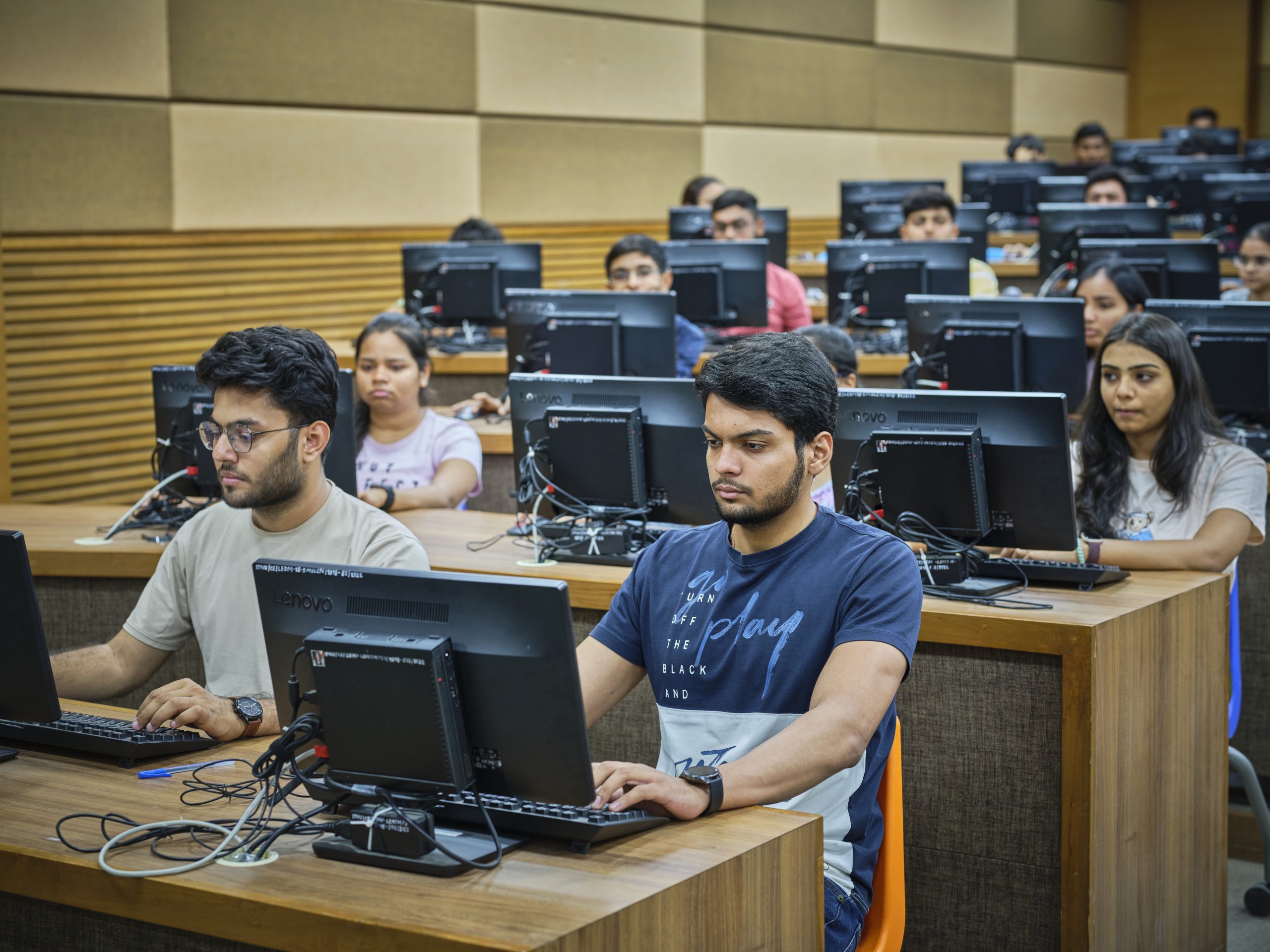
In the last decade, Industry 4.0 or the Fourth Industrial revolution in the form of Big Data, Analytics, Cloud, Artificial Intelligence, Machine Learning etc. has shaped all sectors and human activities globally. Jobs have become hybrid, more complex and multi-disciplinary. Effective performance of these jobs requires skills from a variety of knowledge domain. It is not enough to do just computer science and engineering. Today, a software professional should be adept at design, user interface, team work and collaboration and above all business acumen. These hybrid jobs are just rapidly growing, but are also highly paid right from the start. To prepare such blended professionals equipped with contemporary technological skills, appropriate managerial competencies and industry orientation, the Institute of Management launched the Integrated B.Tech (Computer Science and Engineering) – MBA Programme in 2020.
This Five-year programme is jointly offered with the Institute of Technology, Nirma University. Students learn technical and analytical skills during undergraduate (first three years) at the Institute of Technology. In postgraduate (fourth and fifth year) students enhance their analytical skills and acquire managerial skills necessitated by the technology and data driven context of global business.
Programme Highlights
After undergoing this programme, the student shall be able to:
The first three years [B.Tech-CSE Phase] have six semesters with two semesters in each of the three years. The duration of each semester is approximately16weeks. A teaching week normally has 45 contact hours, out of which 30 hours is for classroom teaching, including tutorials, while the balance 15 hours involves Practical/laboratory/Project Work sessions. The next two years of the Programme is [Postgraduate Phase] has a total of six terms, with three terms in each of the two years. The postgraduate phase of the programme is fully residential.
Faculty members at the Institute of Management, Nirma University use a variety of pedagogical tools as part of their teaching-learning process. These include:
Additionally, each course includes interactions with industry thought leaders that augment the classroom experience. Faculty members also maintain an active discussion with students through the Learning Management System (LMS) and course blogs.